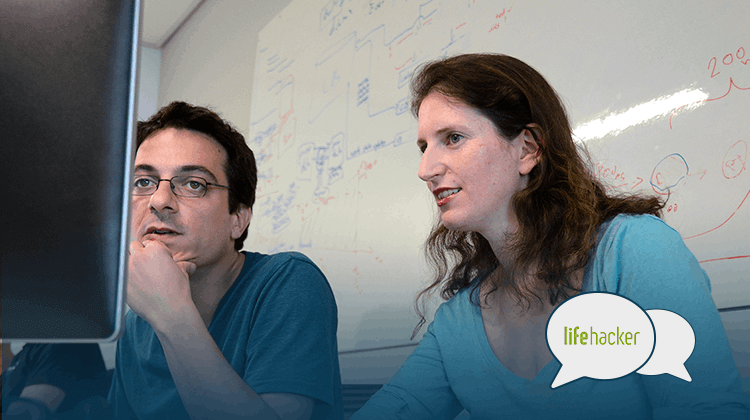Lifehacker recently published a great interview with one of our wonderful fraud analysts, Gilit Saporta. If you’ve ever wondered what fraud analysts really do, this is your chance to find out!
The interview makes for an excellent read, but as is inevitable with a long article, there were some interesting things that didn’t make the final cut. If you’ve ever wondered how to be a fraud analyst, here’s a selection of some of the highlights of the interview, plus some ‘out-takes!’ To read the rest, head over to Lifehacker.
How did you go about getting your job? What kind of education and experience did you need?
Not many people realize the diversity of fraud analysts’ backgrounds. People often imagine you need to have a PhD in statistics and maybe some police experience, but that’s not at all an accurate picture.
[bctt tweet=”Not many people realize the diversity of fraud analysts’ backgrounds. But I come from Theater Directing – and I don’t stand out.”]
What you need is an inquiring mind, determination to see things through, and the creativity to uncover new sources of information, and leverage the data you have in different ways. A degree is beneficial, because it helps train your analytical abilities, teaching you how to think, but it’s not essential. And it needn’t be in a ‘relevant’ field – look at me and Theater Directing.
As for how I got to my current role… Well, Fraud Sciences was famously acquired by PayPal for $169 million when the payments giant saw the kind of results we were capable of getting. (If you haven’t read the story in Start Up Nation, check it out, it’s a great example of how the best ideas can come from newcomers who’re approaching a problem differently.)
[bctt tweet=”The best ideas can come from approaching a problem differently “]
We began focusing on integrating our ideas into PayPal’s system, and in time I became a Senior Analyst and a manager there. It was interesting work, but I missed training new analysts, and I missed the buzz and willingness to experiment that comes with working in a startup.
When I heard that three profoundly impressive individuals I’d known from Fraud Sciences were starting their own company, I jumped at the chance to work with them again. Alon Shemesh, our Chief Analyst, was my first full-time boss, and his knowledge and abilities are awe-inspiring. Liron Damri, our COO, has been known in the different places he’s worked as the best manager you’re likely to find. And then there’s our CEO, Michael Reitblat, a true polymath, who charms and inspires wherever he goes. How could I not want to work with them?
If you’re analyzing millions of transactions for fraud, you obviously aren’t doing to manually. What sort of tools do you use?
This is actually a very interesting issue in fraud prevention today. Believe it or not, there are retailers who review many of their transactions manually. The average is more than a quarter of transactions manually reviewed!
[bctt tweet=”More than a quarter of transactions are manually reviewed, on average! That’s… slow.”]
I know that sounds completely crazy when you consider the number of transactions in e-commerce in the modern world, and in many ways it is; it means a slower and more frustrating process for customers, it’s expensive, and it sounds like something out of another decade.
But it’s a common fraud prevention practice, and it leads to conservative behavior, turning away relatively large numbers of good transactions. That’s the kind of attitude that makes other departments resent Risk so much – it seems like they’re always saying ‘no’.
[bctt tweet=”Other departments resent Risk because it seems like they’re always saying ‘no’ – but there’s no need for that.”]
I’ve seen risk teams all over the world working like this – eyes glazed over, automatically clicking to approve or decline depending on how high or low the score is, since many of these teams use ‘risk engines’ which give scores for the probability of risk.
I hate seeing this. There are highly intelligent people trapped in this kind of environment, rushing to complete manual reviews as fast as possible, loathing Mondays because of the backlog of transactions that builds up over the weekend, terrified of the holiday periods…
It’s such a waste, when they could be using their knowledge and understanding to benefit the business, and leave the reviews to an automated system that would do it faster and better.
Forter, where I work, provides a system that’s 100% automated – meaning every single transaction receives an instant approve/decline decision, in real-time. There’s no more waiting, no more cancelling orders that had been previously approved… You can see how this improves things for the customer – and it makes for a far more interesting job for the fraud analysts.
We do use an in-house system, something we designed, created and maintain ourselves, thanks to the support and ingenuity of our fantastic team of developers. We use it for research – it helps us pick out patterns between important attributes, provides a structure for considering transactions, and so on.
Don’t settle for half the story – read the rest on Lifehacker!



